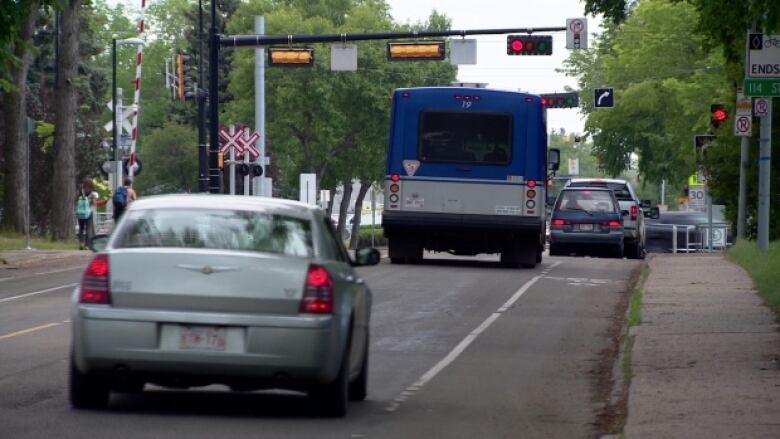1,100 Edmonton intersections need upgrades to support smart signals
Cost to upgrade all intersections estimated at $150 million

Some 1,100 traffic intersections in Edmonton need upgrades to supportsmart technology, a new city report shows.
The report estimatesit would cost approximately $150 million to get the city'straffic signals up to speed.
The upgrades wouldadd adaptive signals to the intersections.Adaptive signals usesensors to gaugetraffic flow and volume and can adjust the timing of the lights. The smartsignalshave been shown to improve travel and wait times.
The report in front of the city's urban planning committee Tuesdayrecommends doing a pilot project to test certain intersections.
Coun. Andrew Knack thinks the city should move faster and start budgeting for signal upgrades this fall.
"It's not like we're trying to figure out whether this technology is here to stay, rather it is here to stay, so part of my thinking is that is there really a point in piloting it anymore then?"
Several North American cities, including Pittsburgh and Toronto, are testing adaptive signals. Administration will monitor the results of pilot projects in other cities.
- Edmonton to host Canada's first smart network for vehicles
- In Edmonton, companies find a humble hub for artificial intelligence
Companies that supply adaptive signalling claim the smart lights can reduce travel time and delays bynearly 40 per cent compared to conventional traffic signals.
The city has flagged two kinds of intersections requiring attention: Ones that are compatible with adaptive signalling but still need upgrades to their detection, cabling and auxiliary devices and ones that aren't compatible and will cost more to upgrade.
There are 700 intersections that need upgrades at a costof$100,000 each and400 signals that require replacements ata cost of $200,000 each.
Knack thinks it's worth investing in the adaptive signals to tackle congestion problems.
"If you're investing in technology that actually reduces wait times and travel times, in fact we could even be improving upon congestion."
Knackplans to ask city staff if it's feasible to skip the pilot and set money asidefor the upgradesin the next budget cycle.












_(720p).jpg)


 OFFICIAL HD MUSIC VIDEO.jpg)
.jpg)



























































































